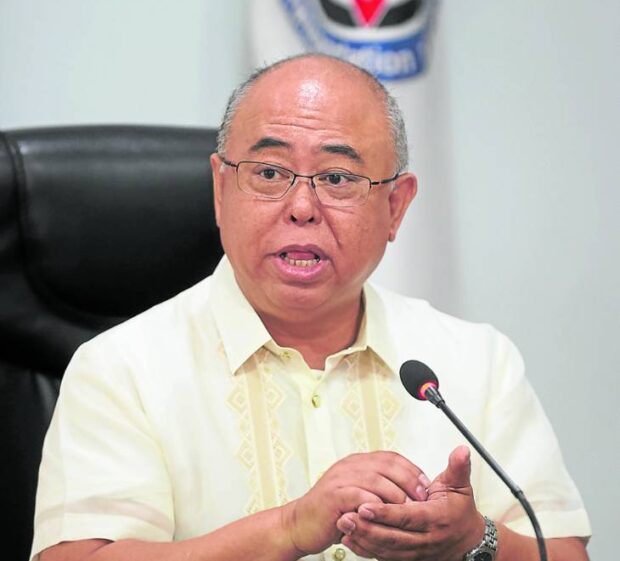LTO alarmed: 65% of vehicles ‘delinquent’

Vigor Mendoza —NIñO JESUS ORBETA
The Land Transportation Office (LTO) has ordered its regional offices to strictly enforce the “no registration, no travel” policy, after its data showed that the majority of vehicles in operation across the country have documentation issues.
In a statement on Thursday, LTO chief Assistant Secretary Vigor Mendoza said 24.7 million, or 65 percent, of the 38.3 million motor vehicles nationwide recorded by the agency this year were found to be “delinquent”—which meant that their owners either failed or deliberately refused to register their vehicles.
Based on those numbers, the LTO lost P37.15 billion this year in terms of uncollected registration fees and penalties, Mendoza said.
He added that there could be more delinquent vehicles than what the agency has so far tallied.
But the figures are already “alarming,” Mendoza said. It was possible that many delinquent vehicles did not pass roadworthiness inspections and emission tests, and do not have insurance coverage, the LTO chief said.
Article continues after this advertisementThreats to road safety
“In other words, these motor vehicles are threats to road safety. We have to be very strict in implementing the laws on land transportation, not only to make it fair to the law-abiding motor vehicle owners, but also for the welfare of the road users,” Mendoza said.
Article continues after this advertisement“This is in line with the directive of our Transportation Secretary Jaime Bautista to exert more efforts in keeping our roads safe for all users,” he added.
Under Republic Act No. 4136, or the Land Transportation and Traffic Code, no motor vehicle shall be used or operated on any public highway unless it is registered.
LTO figures show that 20.15 million, or 81.5 percent, of the total delinquent vehicles were unregistered motorcycles.
This was followed by four-wheel vehicles at 4.01 million, and trucks and buses at around 490,000.
From NCR to Davao
The National Capital Region (NCR) still has the most number of delinquent vehicles at 4.1 million, Mendoza said, citing his agency’s data. This was followed by 3.3 million in Central Luzon and 2.7 million in Calabarzon.
Western and CentraI Visayas each had about 1.8 million delinquent vehicles, while Eastern Visayas had 758,000.
In Mindanao, Davao region had the most number of delinquent vehicles at 1.2 million, followed by the Soccsksargen region at 1.1 million, while the Zamboanga Peninsula and Northern Mindanao each recorded 1 million delinquent vehicles.
‘Obligation’
Mendoza earlier ordered a review of all LTO data, after he cited the need for his office to boost its revenue-generating measures.
He said the P37.15 billion lost by the LTO this year consisted of P15.5 billion in revenue loss from unregistered motorcycles, P18.4 billion from four-wheel vehicles and P3.25 billion from trucks and buses.
The “no registration, no travel” policy must be strictly implemented to discourage a further increase in delinquent vehicles, Mendoza said.
“We need to be strict in enforcing the law, not only because of the revenue losses of the government, but because this is an issue of road safety,” the LTO chief said.
“Each vehicle owner has the obligation to register their vehicles. And we will make sure that all vehicle owners will strictly comply with this responsibility,” he added.